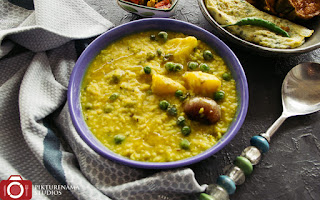Introduction:
The ancient healing system of Ayurveda offers a comprehensive approach to health and well-being, and one of its core practices is Panchakarma. Panchakarma is a Sanskrit term that translates to "five actions," representing a set of therapeutic treatments aimed at detoxifying and rejuvenating the body. Central to the success of Panchakarma is the Panchakarma diet, which plays a crucial role in supporting the body's natural cleansing processes and promoting overall vitality.
Understanding Panchakarma Diet:
The Panchakarma diet is an integral part of the Panchakarma treatment process. It serves a dual purpose: preparing the body for the detoxification therapies and aiding in the elimination of accumulated toxins. According to Ayurvedic principles, every individual possesses a unique combination of three doshas—Vata, Pitta, and Kapha—and the Panchakarma diet aims to balance these doshas for optimal health.
Preparing for Panchakarma Diet:
Before embarking on the Panchakarma diet, it is essential to consult an experienced Ayurvedic practitioner. They will assess your dosha constitution and any imbalances to tailor a personalized diet plan. Additionally, the purification process of Purva Karma is performed to prepare the body for the cleansing therapies.
The Panchakarma Diet Plan:
The Panchakarma diet emphasizes fresh, seasonal, and locally sourced foods. It includes nourishing and easily digestible meals that vary according to each dosha type. Foods rich in antioxidants, vitamins, and minerals are preferred, while processed and heavy foods are avoided.
Daily Routine and Meal Timings:
Ayurveda recommends mindful eating, and the Panchakarma diet follows a specific meal structure. Each meal should incorporate the six tastes—sweet, sour, salty, bitter, pungent, and astringent—to satisfy the body's nutritional needs fully. Regular meal timings and a calm eating environment promote better digestion and absorption of nutrients.
Herbal Support in Panchakarma Diet:
Ayurvedic herbs and spices play a crucial role in supporting the detoxification process. Herbal teas, infusions, and supplements aid in purifying the body and balancing the doshas. Some common herbs used include ginger, turmeric, triphala, and neem.
Practical Tips for Following the Panchakarma Diet:
Embracing the Panchakarma diet involves practical adjustments to one's lifestyle and eating habits. Meal preparation should focus on fresh ingredients and balanced combinations of tastes. Ayurvedic recipes and guidelines are readily available to help maintain a nutritious and delicious diet.
Benefits of Panchakarma Diet:
Following the Panchakarma diet offers numerous benefits. It facilitates the elimination of accumulated toxins, leading to improved digestion, metabolism, and overall health. Additionally, it enhances mental clarity and emotional balance, promoting a sense of well-being.
Post-Panchakarma Diet Transition:
After completing the Panchakarma treatment, the body requires a gradual transition to regular eating habits. Ayurvedic practitioners advise reintroducing foods gradually, keeping the principles of the Panchakarma diet in mind. This approach ensures that the benefits of the treatment are sustained over the long term.
Common Misconceptions About Panchakarma Diet:
There are some misconceptions surrounding the Panchakarma diet. It is not about strict fasting but nourishing the body during the cleansing process. While weight loss might occur, it is a byproduct of the overall detoxification and rejuvenation, not the primary goal. The Panchakarma diet is highly individualized, considering the unique constitution of each person.
Panchakarma Diet and Modern Science:
Modern scientific studies are increasingly validating the efficacy of Ayurvedic practices, including the Panchakarma diet. Integrative approaches to health, combining Ayurveda with conventional medicine, are gaining popularity, providing comprehensive solutions to various health concerns.
Conclusion:
The Panchakarma diet is a holistic and effective approach to cleansing and nourishing the body. By following this ancient wisdom, individuals can experience improved health, vitality, and well-being. Embracing Ayurveda and the Panchakarma diet allows us to harness the power of natural healing for a balanced and harmonious life.
FAQs After the Conclusion:
Is the Panchakarma diet suitable for everyone?
The Panchakarma diet is highly individualized and can be adapted to suit different body types and health conditions. It is best to consult an Ayurvedic practitioner to determine its suitability for you.
Can I follow the Panchakarma diet without undergoing Panchakarma treatment?
While the Panchakarma diet can be beneficial on its own, it is most effective when combined with Panchakarma treatments to support the body's detoxification process fully.
Are there any side effects of the Panchakarma diet?
The Panchakarma diet is a natural and gentle approach to cleansing, and when followed correctly, it typically has no adverse side effects. However, individual reactions may vary.
How long should I follow the Panchakarma diet?
The duration of the Panchakarma diet depends on individual health goals and the recommendations of an Ayurvedic practitioner. It may vary from a few weeks to a couple of months.
Can I resume my regular diet after Panchakarma treatment?
After completing Panchakarma treatment, it is essential to transition gradually to a regular diet. Incorporate the principles of the Panchakarma diet into your daily eating habits for sustained benefits.





.jpg)


